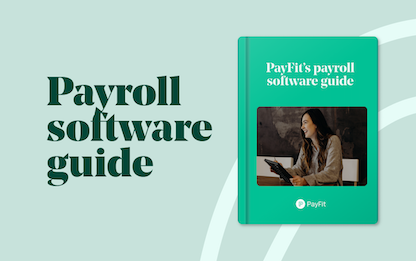- Blog
- |Managing Payroll
- >Payroll legislation
- >2022 Autumn Statement for payroll & business
The 2022 Autumn Statement: What it Means for Your Business & Payroll


Well, it’s certainly been a rollercoaster of a year for all those involved in payroll. But the 2022 Autumn Statement seems to have settled things down (just a little).
While the previous ill-fated Mini Budget may have been full of twists and unexpected surprises, Thursday’s statement by Jeremy Hunt proves less of a page-turner. But perhaps that’s something to be relieved about. After a year that has seen not one, not two, but three changes to National Insurance rates, I think we can all agree it’s nice to have a breather!
We can, of course, confirm there are no further NI rate changes. That’s not to say the Chancellor didn’t announce other significant measures, but these will only take effect from April 2023 onwards.
If you haven’t noticed, the economy isn’t at its fittest. And according to the new government, this requires a balanced plan that protects jobs and essential services while providing a steadier economic downturn (read softer landing).
So what did Hunt announce as part of the 2022 Autumn Statement, and which of these decisions are most relevant to your company’s payroll? Here’s a recap of Thursday’s announcements.
45p tax threshold reduced
This wasn't a total surprise - there were rumblings before the chancellor's speech that the threshold could change, But there were also predictions of changes to the rate itself which didn't come to fruition.
What we do know is that from the 6th of April 2023, the 45p tax threshold will be reduced from £150, 000 to £125,140, affecting higher earners.
NLW increase
Given the recent recommendations by the Low Pay Commission (LPC), it was heartwarming to see the 2022 Autumn Statement include this.
From the 1st of April, the National Living Wage will be increased from £9.50 to £10.42, marking a 9.7% rise. Hunt hopes this increase will be welcomed by employees struggling with the Cost of Living Crisis - over 2 million of the lowest-paid earners stand to benefit across the country.
Of course, it goes without saying that while an excellent measure for employees, the pressure on employers will increase to meet this basic rate of pay.
Revision to company car tax
Starting in 2025, the company car tax rate will rise for electric vehicles (EVs) by a maximum of 1% per year for three years.
The goal is to keep EV rates low while helping businesses plan for the future with company car plans, as leasing contracts can span multiple years.
Rates for other vehicle bans will rise by 1% for 2025/26 and then freeze from 2026-2028.
Some things will stay the same
Hunt made it clear in his Autumn Statement that quite a few measures are staying the same, including National Insurance rates and employment allowance.
NI threshold freeze
This is a message many payroll professionals will be happy about. Finally, after a turbulent year of will-they-won't-they National Insurance rate hikes and reductions, the National Insurance contribution threshold will be frozen until April 2028. In a nutshell, the 2022 Autumn Statement makes it clear there are no planned changes to NI and NI reliefs for the foreseeable future, which should make things easier for businesses to stay on top of this kind of compliance.
PAYE Freepay and employment allowance
In addition to this, the PAYE Freepay allowance (in other words, the 1257L tax code) will also freeze until 2028. Employment allowance will also remain at the £5,000 limit.
To keep an eye on
Of course, these major fiscal statements are never a one-and-done. Lots of details remain to be ironed out from the 2022 Autumn Statement, and there are a few things to keep our eye on…
The government is still reviewing the state pension age (they’ll confirm this in 2023). The Pensions Regulator recently announced that they’re considering the automatic enrolment age and whether to reduce this to 18 (currently 22). And, the lower level of qualifying earnings could be abolished in favour of making more earnings pensionable.
Rebecca Russell
Payroll Expert
Stay up to date with PayFit
If your head's been spinning from all the changes this year, you're not alone. It's been a strange time, both politically and economically. But, more importantly, you don't have to stress over compliance in the run-up to the end of the tax year because there's a better way of doing payroll.
PayFit is the always up-to-date payroll platform designed for modern businesses. Our software is HMRC-recognised and continually updated to reflect the latest legislation changes. So you no longer have to worry about keeping up with compliance - PayFit does this for you while making your payroll runs an easy and smooth experience.
Book a demo today to find out what PayFit can do for your business.


UK Expenses Management - A Guide For Employers

Overtime Pay Rates & Laws in the UK

The 2024 UK National Living Wage - An Employer’s Guide

The Cost Of Recruitment In The UK - What You Might Not Know

UK National Insurance Changes for January 2024

